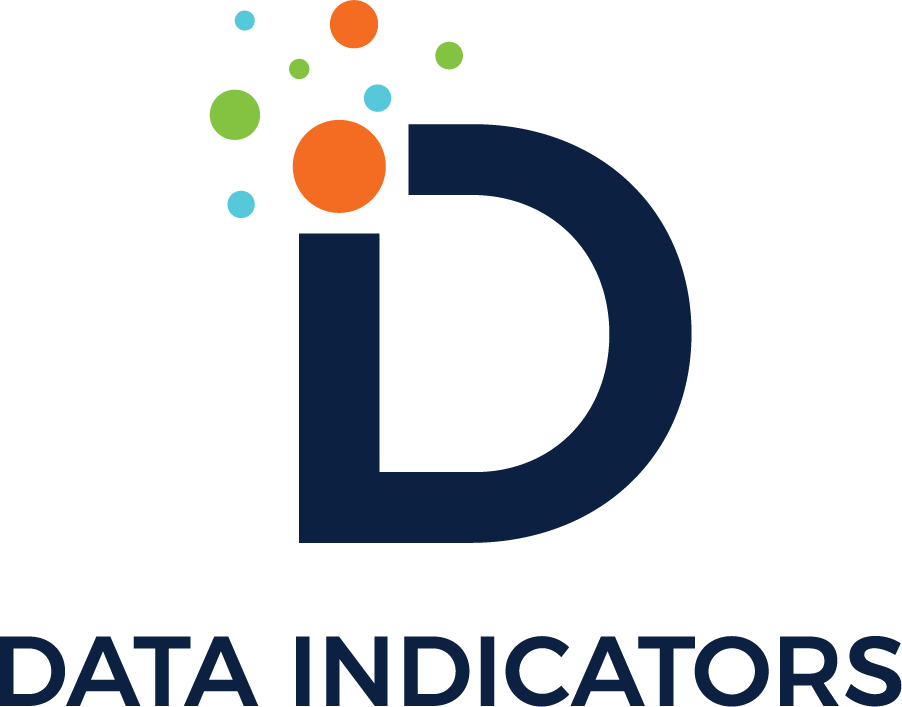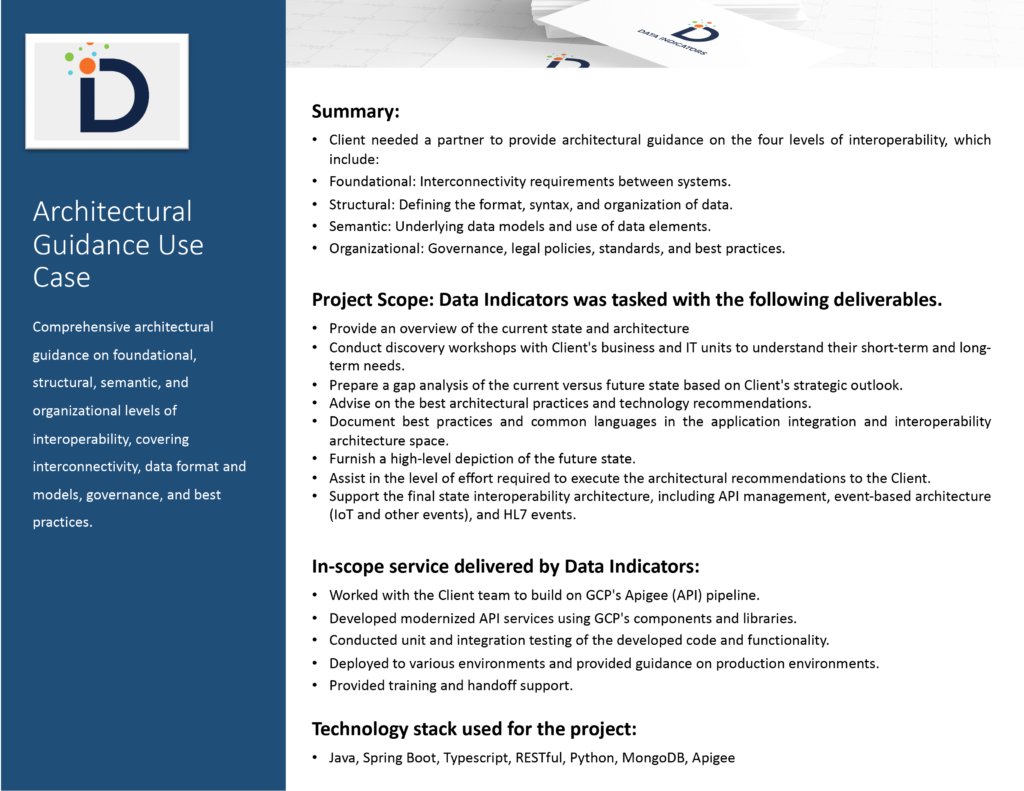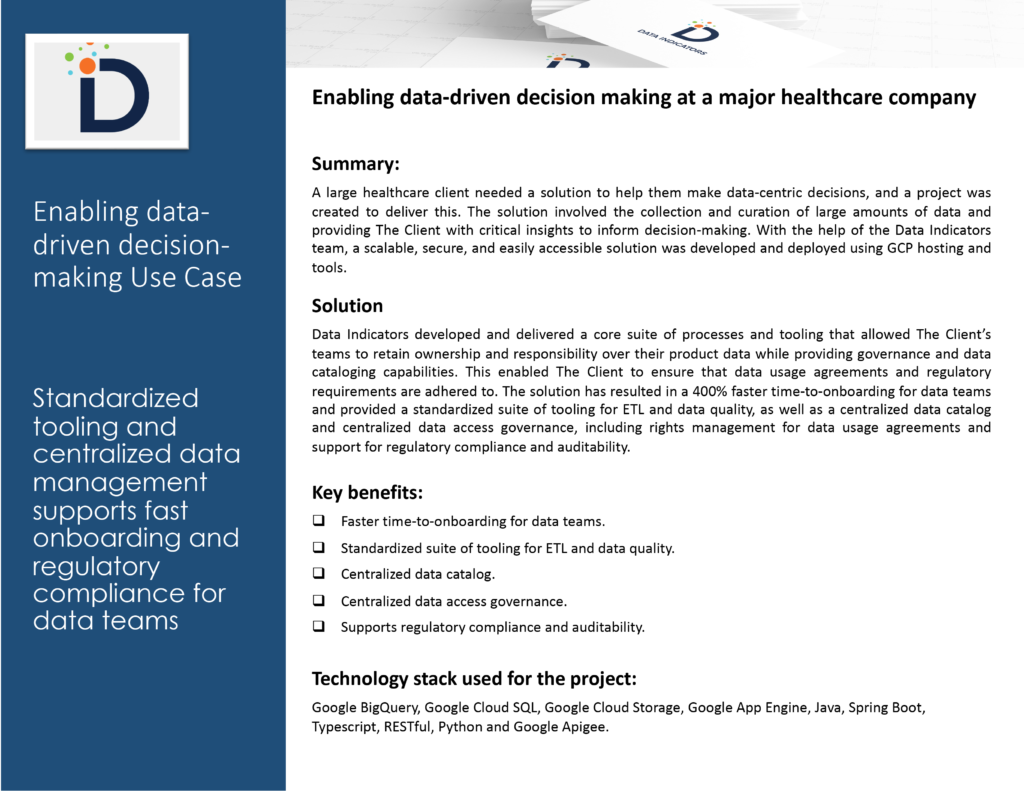
who we are
Data Indicators
Since Data Indicators inception in 1997, we have set out to offer innovative, highly specialized data-centric services to address our clients’ challenges in harnessing time-sensitive, valuable, and actionable insights from their data. Today, we steadfastly remain on the same path. Our services offerings have grown with the Cloud revolution and convergence of new technologies. We are heavily invested in helping our clients navigate their digital transformation journey and unlock real time insight, smart predictions and intelligent action from their data that can uncover new business values and opportunities.






